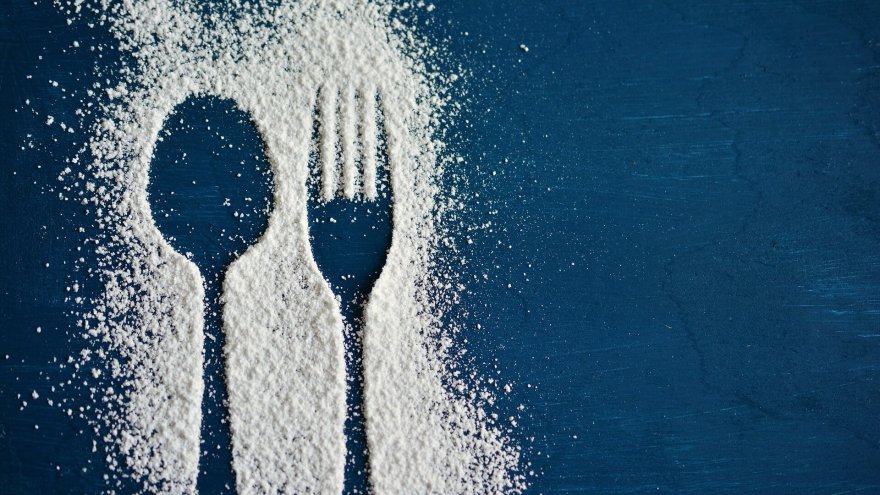Should You Be Worried About Insulin Resistance?

It’s estimated that 84 million people over the age of 18 living in the United States are affected by insulin resistance. That’s about 1 out of every 3 adults, an alarming percentage by any reckoning. Considering these stats, it seems reasonable that we would all be aware of or at least strive to prevent or reverse the trend. Instead, I only had a vague concept of the issue before writing this article and many friends I spoke to were in the same position. Here’s what you need to know about insulin resistance including what causes it and tips on how to prevent it.
What Is Insulin, and Why Do We Need It?
Insulin is a hormone that is produced by your pancreas to help your body control how it processes glucose (or sugar) and converts it into energy. Glucose is a simple sugar that is obtained from the foods you eat (it’s found in many carbohydrates) and along with fat, it is your body’s main source of fuel. In order to utilize the glucose as fuel, your body needs to move the glucose from your bloodstream into cells for energy and storage. This is where insulin steps in. During or after eating, the beta cells in your pancreas release insulin to help control the spiked glucose levels. The beta cells also act as a monitor for the blood sugar levels in your body. When functioning properly, they are monitoring almost constantly. The released insulin, in turn, helps move the new glucose from the bloodstream and into your cells. Insulin has been referred to as the ‘key’ that unlocks your muscle, fat and liver cells in order to ‘let the glucose in’. Once in your cells, the glucose is converted into energy as needed.

Any leftover glucose is called glycogen and is stored in the cells of your muscles and liver (your body can store about a days’ worth of glycogen). A few hours after eating, your glucose levels will drop, and the beta cells monitoring your blood sugar level will signal your pancreas to stop producing insulin. Now, alpha cells in your pancreas begin to release a hormone called glucagon, which notifies your liver to convert the stored glycogen back into usable glucose until you can eat again. It’s an ongoing, continual process, and it’s easy to see how serious health issues can arise when this system is not able to run smoothly.
What Is Insulin Resistance?
When the insulin your body produces has less than the intended effect (i.e. it is not helping the glucose enter the cells efficiently), this means that your body is not utilizing insulin properly. In order to compensate, the beta cells in your pancreas will release extra insulin in an attempt to maintain healthy glucose levels, which is great. But eventually, your beta cells won’t be able to keep up with this new demand, resulting in consistently raised glucose levels in your blood. It’s these high blood glucose levels that cause conditions such as pre-diabetes and may ultimately lead to type 2 diabetes.
Some of the patients who have type 2 diabetes suffer from insulin resistance, while others have insulin deficiency. Diabetes simply means that you have elevated levels of blood sugar because your body cannot regulate your blood sugar properly – and that can go either way. It’s important to understand that insulin resistance by itself does not cause diabetes unless it is also coupled with a decrease in the production of insulin.

What Causes Insulin Resistance?
The exact reason is not yet fully understood, although many health professionals believe that the following health issues are the main causes.
- Visceral Fat. Described as excessive fat found below the wall of your abdomen cavity and surrounding nearby organs such as your liver, pancreas, and intestines. In most people, visceral fat accounts for about 10% of your body fat and is not visible as it’s under the surface. The other 90% is subcutaneous fat, the kind you can pinch with your fingers and see with your eyes. Visceral fat may cause insulin resistance regardless of a healthy BMI.
- Obesity. An over-accumulation of fat in the body, measured as when a person’s body mass index, or BMI, is 30% or greater. BMI is calculated by your weight (in kilograms) over your height squared (in meters) and applies to adults from ages 18 to 65 years old. The healthy range is considered to be somewhere between 18 to 25 BMI.
- Insufficient Physical Activity. Regular physical exercise positively affects the blood glucose levels in your body. This is because when you exercise, your muscles take up more glucose as energy than usual, which lowers your blood glucose levels.
- Genetic and/or Ethnic Background. You may be at higher risk for insulin resistance if you are African American, Asian, Hispanic, or if you have diabetes in your family history.
- Varied Causes. Aging, pregnancy, stress, the use of some pharmacologic agents, and certain medical conditions can also put you at a higher risk.

Insulin resistance can significantly raise your chances of several serious medical conditions: type 2 diabetes as mentioned, but also hypertension, obesity, cardiovascular disease, polycystic ovary syndrome, and many more.
The best defense is prevention, as is the case with many health issues. Exercising regularly, maintaining a healthy BMI and waistline, and engaging in occasional cycles of fasting will all help keep insulin resistance at bay.
Sources
- , Insulin Resistance: Recognizing the Hidden Danger, News
- , Insulin Resistance & Prediabetes, Health Information
Latest Articles
 Is Running on a Treadmill Easier Than Running Outside?Runners have their own preferences, whether it is treadmill running, running outside on the road, or exploring trails. So...
Is Running on a Treadmill Easier Than Running Outside?Runners have their own preferences, whether it is treadmill running, running outside on the road, or exploring trails. So... Is It OK to Use Trail Running Shoes on the Road?While trail running shoes can be used on roads, especially in situations where a runner encounters mixed terrains or pref...
Is It OK to Use Trail Running Shoes on the Road?While trail running shoes can be used on roads, especially in situations where a runner encounters mixed terrains or pref... How to Fix Sore Quads After Running?Rest, ice, gentle stretching, and over-the-counter pain relievers can help soothe sore quads after running. Also, ensure ...
How to Fix Sore Quads After Running?Rest, ice, gentle stretching, and over-the-counter pain relievers can help soothe sore quads after running. Also, ensure ... 10 Fruits With The Most Electrolytes to Replace Sports DrinksThese fruits are high in electrolytes such as potassium, magnesium, and calcium, essential for hydration, muscle function...
10 Fruits With The Most Electrolytes to Replace Sports DrinksThese fruits are high in electrolytes such as potassium, magnesium, and calcium, essential for hydration, muscle function...

